
Beekeeping in South Africa
The most important thing new beekeepers in South Africa will need when starting beekeeping is knowledge.
Pollen of different colours as well as some bee larvae in the uncapped cells can be seen here.
You will need to understand the specific technique to manage bees, the hive structure, the bee’s tasks, its body and how it feeds, its favourite foods, predators and diseases. Honeybees in South Africa are tricky and intricate to manage, but there are various market-related opportunities in beekeeping.
If you want to start bee farming in South Africa, new beekeepers will also need a swarm (or bee colony), a hive and a place to put the hive, close enough to a food source for bees. (A good source of forage and water will produce an excellent yield of honey). Protective clothing and some tools to work with the hive and colony will also be needed.
South Africa Online ® offers prospective bee farmers a chance to learn more about commercial beekeeping in South Africa, with tools provided by industry experts and a range of articles related to bee farming, honey farms, bee-products and how to start beekeeping.
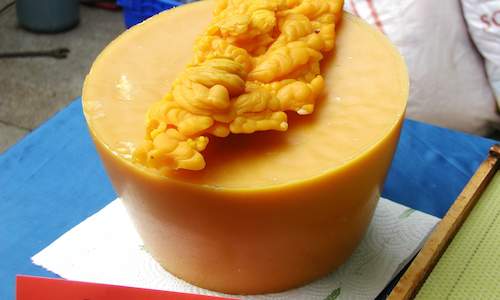
Apitherapy is essentially 'bee therapy' and is the use of bee products for the treatment and prevention of diseases. According to the Americ...
more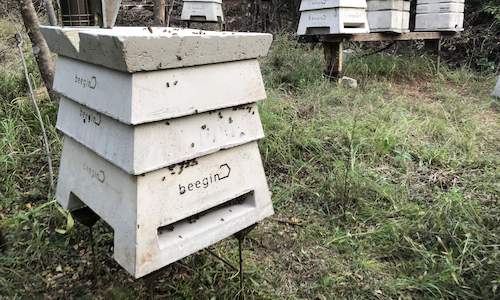
A hive is where the bees will live, raise new bees, keep their egg-laying queen safe and produce honey and other substances for feed....
more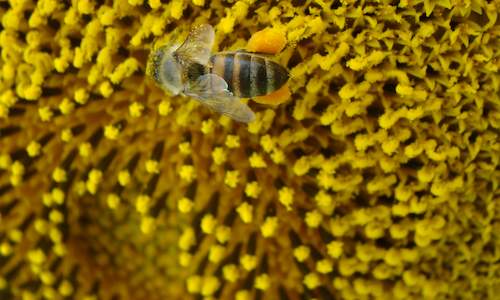
The profile of beekeepers in South Africa (SA) does not differ much from the rest of the world. Less than 5% of beekeepers in SA own the lan...
more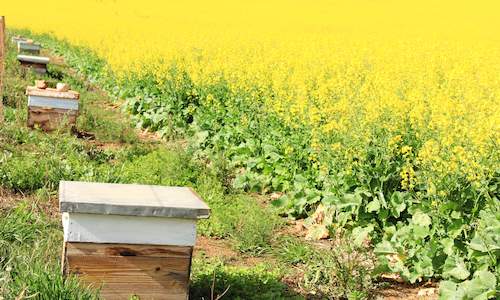
Bees are ‘famous’ for their honey (and other products) that they produce. But there has been an increasing awareness of the important se...
more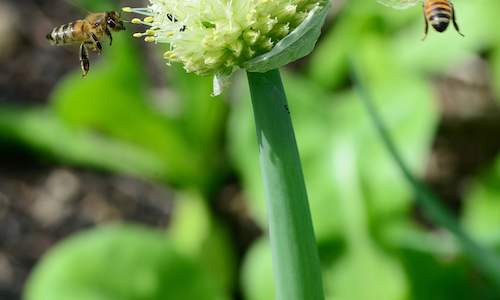
Apart from registering their hives, there are certain requirements for beekeepers to provide pollination services to food crops....
more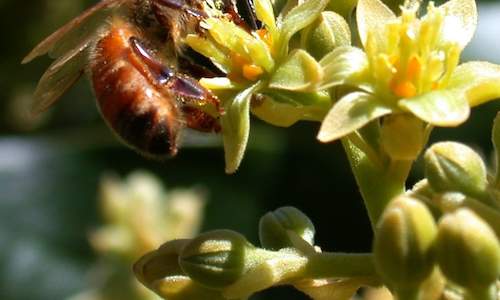
Honey is the golden sweet sticky substance made by bees and other insects. Mainly used by bees to feed their brood, it has been used by huma...
more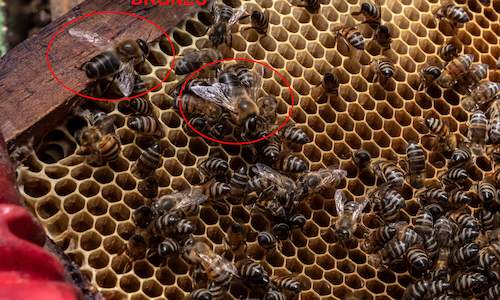
Honeybees are social insects and live in large colonies. Each colony contains one fertile female, the queen, and many thousands of worker be...
more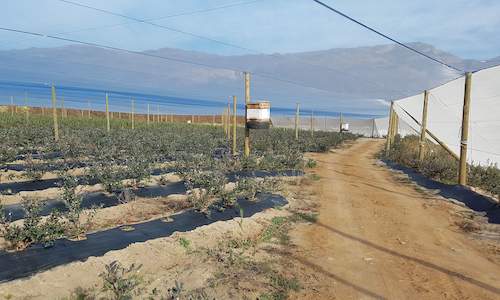
In South Africa, honeybees and their related products (e.g. honey, beeswax, propolis) and services (pollination for crop production) contrib...
more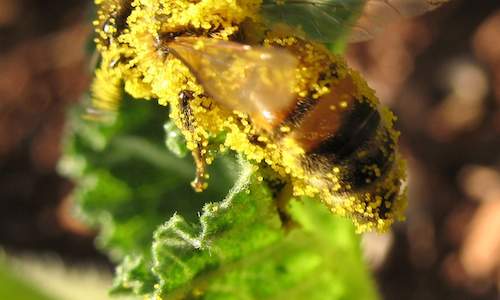
Pollen is a substance produced by the anthers of seed-bearing plants. It consists of fine pollen grains containing male gametes (a plant’s...
more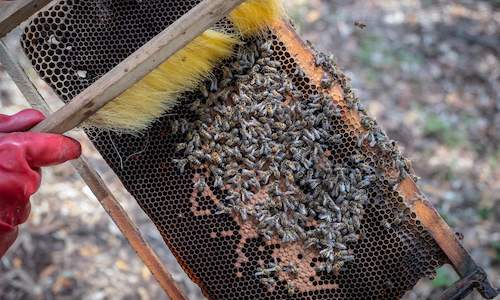
The commercial beekeeper will be able to supply pollination services and produce bee-related products such as honey, propolis and wax and ma...
more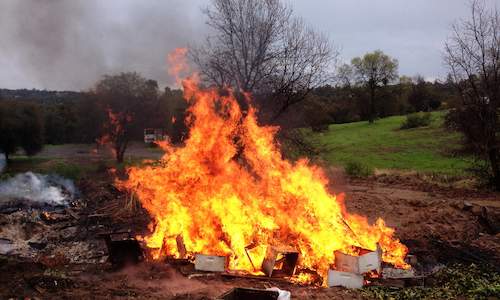
Being knowledgeable about honeybee pests and diseases is important for beekeepers to ensure healthier swarms and better quality bee-related ...
more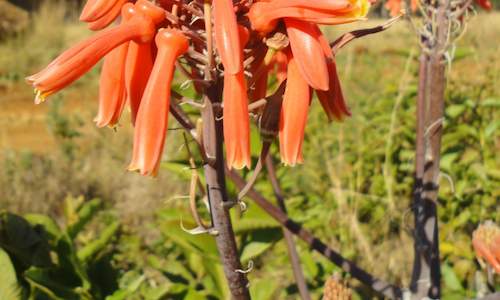
Stronger well-fed bees are likely to better survive droughts and winter and rear more young bees than those that did not receive supplementa...
more
Pollinators, in general, provide a wide range of benefits to humans. Our well-being depends heavily on various ecosystems and their function...
more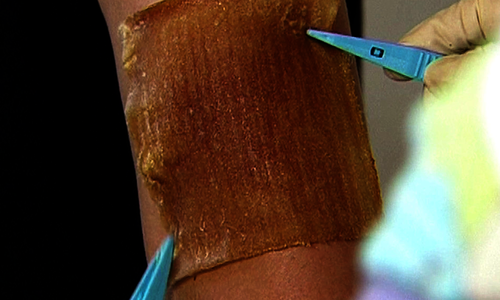
Apart from being a nutritious and energy providing food, honey has been known since ancient times to be antimicrobial and antibacterial. It ...
more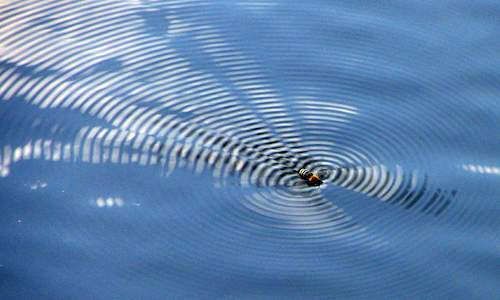
Honey bees need water for two main purposes. Firstly, water is used to dilute crystallised honey so that it can be added to brood food. Seco...
more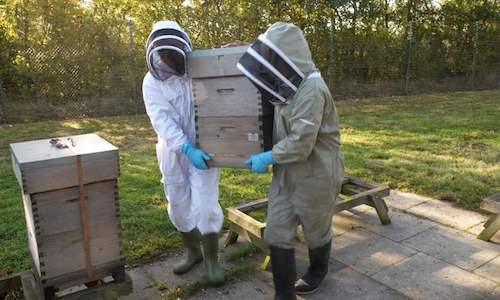
The most important thing new beekeepers in South Africa will need when starting beekeeping is knowledge. You will need to understand the spe...
more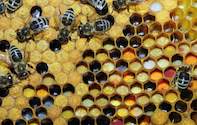
 Apitherapy is essentially 'bee therapy' and is the use of bee products for the treatment and prevention of diseases. According to the Americ...
Apitherapy is essentially 'bee therapy' and is the use of bee products for the treatment and prevention of diseases. According to the Americ... A hive is where the bees will live, raise new bees, keep their egg-laying queen safe and produce honey and other substances for feed....
A hive is where the bees will live, raise new bees, keep their egg-laying queen safe and produce honey and other substances for feed.... The profile of beekeepers in South Africa (SA) does not differ much from the rest of the world. Less than 5% of beekeepers in SA own the lan...
The profile of beekeepers in South Africa (SA) does not differ much from the rest of the world. Less than 5% of beekeepers in SA own the lan... Bees are ‘famous’ for their honey (and other products) that they produce. But there has been an increasing awareness of the important se...
Bees are ‘famous’ for their honey (and other products) that they produce. But there has been an increasing awareness of the important se... Apart from registering their hives, there are certain requirements for beekeepers to provide pollination services to food crops....
Apart from registering their hives, there are certain requirements for beekeepers to provide pollination services to food crops.... Honey is the golden sweet sticky substance made by bees and other insects. Mainly used by bees to feed their brood, it has been used by huma...
Honey is the golden sweet sticky substance made by bees and other insects. Mainly used by bees to feed their brood, it has been used by huma... Honeybees are social insects and live in large colonies. Each colony contains one fertile female, the queen, and many thousands of worker be...
Honeybees are social insects and live in large colonies. Each colony contains one fertile female, the queen, and many thousands of worker be... In South Africa, honeybees and their related products (e.g. honey, beeswax, propolis) and services (pollination for crop production) contrib...
In South Africa, honeybees and their related products (e.g. honey, beeswax, propolis) and services (pollination for crop production) contrib... Pollen is a substance produced by the anthers of seed-bearing plants. It consists of fine pollen grains containing male gametes (a plant’s...
Pollen is a substance produced by the anthers of seed-bearing plants. It consists of fine pollen grains containing male gametes (a plant’s... The commercial beekeeper will be able to supply pollination services and produce bee-related products such as honey, propolis and wax and ma...
The commercial beekeeper will be able to supply pollination services and produce bee-related products such as honey, propolis and wax and ma... Being knowledgeable about honeybee pests and diseases is important for beekeepers to ensure healthier swarms and better quality bee-related ...
Being knowledgeable about honeybee pests and diseases is important for beekeepers to ensure healthier swarms and better quality bee-related ... Stronger well-fed bees are likely to better survive droughts and winter and rear more young bees than those that did not receive supplementa...
Stronger well-fed bees are likely to better survive droughts and winter and rear more young bees than those that did not receive supplementa... Pollinators, in general, provide a wide range of benefits to humans. Our well-being depends heavily on various ecosystems and their function...
Pollinators, in general, provide a wide range of benefits to humans. Our well-being depends heavily on various ecosystems and their function... Apart from being a nutritious and energy providing food, honey has been known since ancient times to be antimicrobial and antibacterial. It ...
Apart from being a nutritious and energy providing food, honey has been known since ancient times to be antimicrobial and antibacterial. It ... Honey bees need water for two main purposes. Firstly, water is used to dilute crystallised honey so that it can be added to brood food. Seco...
Honey bees need water for two main purposes. Firstly, water is used to dilute crystallised honey so that it can be added to brood food. Seco... The most important thing new beekeepers in South Africa will need when starting beekeeping is knowledge. You will need to understand the spe...
The most important thing new beekeepers in South Africa will need when starting beekeeping is knowledge. You will need to understand the spe...